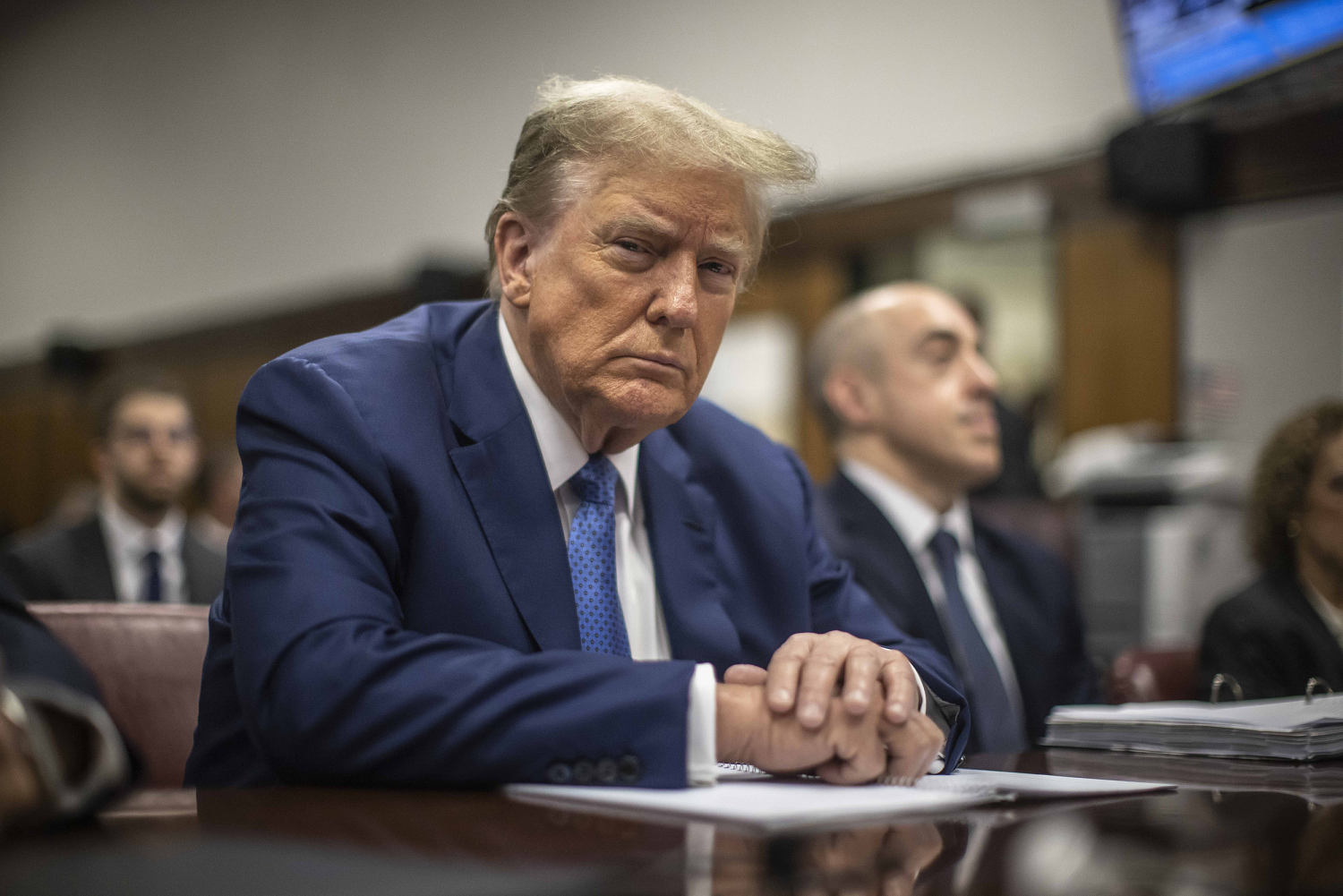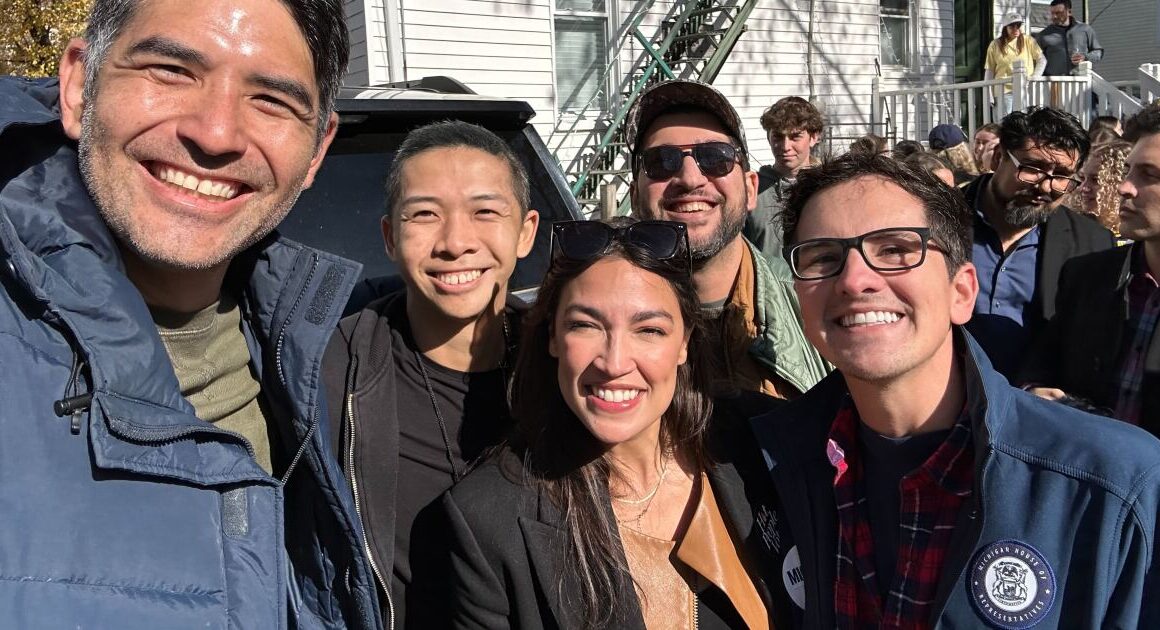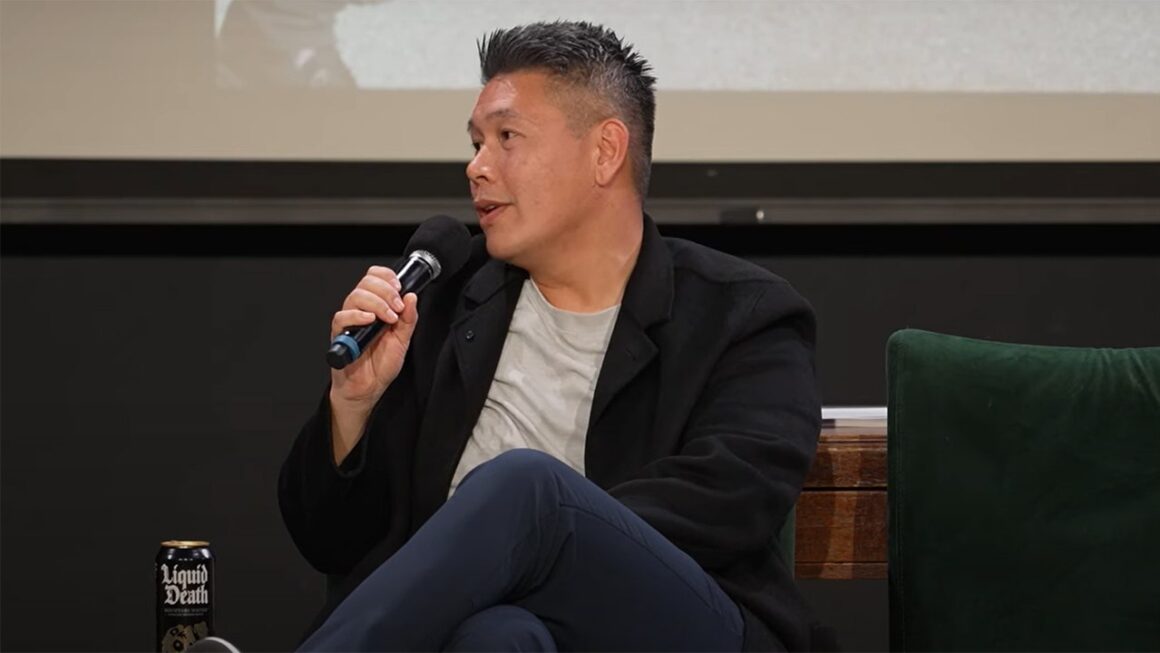
A jury last week found Donald Trump guilty of 34 felonies, but it remains to be seen just how high a price the former president will pay for his crimes. Judge Juan Merchan, who has presided over the case, has scheduled a sentencing hearing for July 11.
It’s difficult to say with confidence what to expect, though as NBC News reported, the Republican is already peddling some needlessly provocative rhetoric on the subject.
Former President Donald Trump on Sunday said he thinks there would be a “breaking point” for the public if he is sentenced to house arrest or imprisonment after he was found guilty on all counts in the hush money trial last week.
During his latest Fox News appearance, the presumptive GOP nominee conceded that he could face a harsh sentence after having been found guilty, though he warned that it could be “tough” for the public.
“I don’t know that the public would stand it. You know, I don’t — I’m not sure the public would stand for it,” Trump said. “I think it would be tough for the public to take. You know, at a certain point, there’s a breaking point.”
He did not elaborate on what, exactly, would happen at this “breaking point,” though the rhetoric wasn’t exactly subtle.
If the on-air comments sounded at all familiar, it wasn’t your imagination. In September 2022, for example, after the FBI executed a court-approved search warrant at Mar-a-Lago, the former president wrote that he didn’t know “how much more our Country will be willing to withstand.” He used similar rhetoric two months later. A month after that, he added, “THE PEOPLE OF THIS COUNTRY AREN’T GOING TO TAKE IT MUCH LONGER.”
Around the same time, conservative host Hugh Hewitt asked about a possible criminal indictment. “I think if it happened, I think you’d have problems in this country the likes of which perhaps we’ve never seen before,” Trump said. “I don’t think the people of the United States would stand for it. … I think they’d have big problems, big problems. I just don’t think they’d stand for it.”
Note, Trump didn’t come right out and explicitly say his radicalized followers would commit acts of political violence. That certainly appeared to be the intended subtext, and there was no great mystery about his meaning, but the former president showed at least some rhetorical restraint.
Nevertheless, in February, the Republican took additional steps down the same path, promoting an online message from a supporter who threatened to “physically fight” for Trump. The same missive concluded with a “locked and loaded” warning.
A month later, Trump publicly derided calls for “peace,” while suggesting that his indictment would raise the prospect of “death [and] destruction” that “could be catastrophic for our Country.”
The same week, an NBC News reporter asked the former president whether he believed political violence would be “justifiable.” Trump responded, “Well, I will say this. No, I don’t like violence, and I’m not for violence at all. But a lot of people are upset, and you know, they rigged an election, they stole an election, they spied on my campaign. They did many bad things.”
As a rule, when someone says, “I’m not for violence at all, but…” there’s a rather obvious problem.
Last summer, Trump kept this going. Asked about the prospect of incarceration as a result of his many alleged felonies, the former president added, “I think it’s a very dangerous thing to even talk about, because we do have a tremendously passionate group of voters, much more passion than they had in 2020 and much more passion than they had in 2016. I think it would be very dangerous.”
It was the next day when the Republican promoted a video that quoted him saying, over an image of his face and his campaign logo, “If you f— around with us, if you do something bad to us, we are going to do things to you that have never been done before.”
As part of an analysis of his incendiary rhetoric, a Washington Post report added, “There is now no denying that such language, even if you somehow regard Trump’s intentions as innocent, can lead to a very dark place.”
By some measures, that dark place is already visible. Reuters reported last week, for example, that in the wake of the Republican’s conviction, his followers “flooded pro-Trump websites with calls for riots, revolution and violent retribution.” The report noted that some of online contributors “called for attacks on jurors, the execution of the judge, Justice Juan Merchan, or outright civil war and armed insurrection.”
NBC News had a related report, noting violent threats targeting those responsible for administering justice — including jurors. If Trump is concerned about such consequences, he’s hiding his fears well.
Rachel spoke about the broader dynamic in great detail in the immediate aftermath of the verdict, and if you missed the coverage, I’d recommend checking it out. One of the questions she raised — will the United States protect the people who enact our legal system, so that it can function without fear or favor? — need not be rhetorical.
This post updates our related earlier coverage.
![]()





